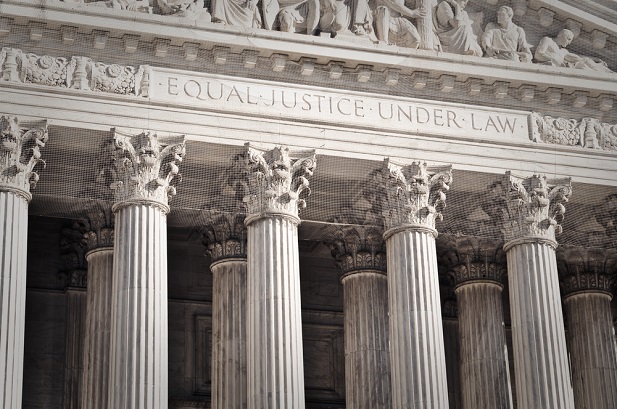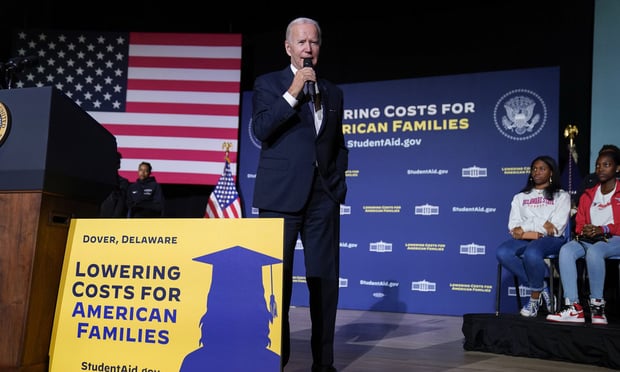 “Aplaintiff can simply assert that he did not read the relevant plandocuments, or simply that he cannot recall whether he saw them,”Intel's appeal argued. “Plan administrators will have no readymeans of disproving that assertion.” (Photo: Shutterstock)
“Aplaintiff can simply assert that he did not read the relevant plandocuments, or simply that he cannot recall whether he saw them,”Intel's appeal argued. “Plan administrators will have no readymeans of disproving that assertion.” (Photo: Shutterstock)
(Bloomberg) –The U.S. Supreme Court agreed to use an appeal by Intel Corp. to consider tighteningthe deadlines for lawsuits over the investments made by worker retirement plans.
|Intel is fighting claims by ex-employee Christopher Sulyma thatthe company made overly risky investments, with too much money inhedge funds and private equity. Intel says the lawsuit was filed after a three-year statute oflimitations had expired.
|Sulyma, who worked at Intel from 2010 to 2012, had access toelectronic documents describing the investments more than threeyears before he sued. But he says he doesn't recall reading thosedocuments and didn't learn about Intel's hedge-fund andprivate-equity investments until they became the subject of newsreports in 2015, the year he sued in federal court inCalifornia.
|A U.S. employee-benefit law gives workers three years to sueafter they have “actual knowledge” of an alleged violation. Inletting Sulyma's suit move forward, a federal appeals court saidthat provision “means what it says.”
|“If Sulyma in fact never looked at the documents Intel provided,he cannot have had 'actual knowledge of the breach' because hecannot have been aware that imprudent investments were made andthat other Intel fiduciaries were failing to monitor or remedy thatimprudence,” the three-judge panel said.
|A different federal appeals court reached the oppositeconclusion in 2010, saying employees don't get more time justbecause they failed to read documents that were available tothem.
|In its appeal, Intel said that “the concept of actual knowledgeis broad enough to encompass situations in which the plaintiffpossesses the necessary information without any need for furtherinquiry.”
|The company said the ruling in its case could have dangerousconsequences for employers that sponsor retirement plans.
|“A plaintiff can simply assert that he did not read the relevantplan documents, or simply that he cannot recall whether he sawthem,” the appeal argued. “Plan administrators will have no readymeans of disproving that assertion.”
|Sulyma, whose suit seeks class-action status, urged the courtnot to hear the appeal.
|“If someone receives a book as a present and does not read it,they do not have 'actual knowledge' of what the book is about,” heargued.
|The Supreme Court is also planning to hear aretirement-plan clash involving InternationalBusiness Machines Corp. during the nine-month term that starts inOctober. IBM is urging the court to require more specificallegations of wrongdoing before workers can sue over a drop in anemployer's stock price.
|The new case is Intel v. Sulyma, 18-1116.
|READ MORE:
|Avoiding the headaches and frustration of ERISAlawsuits
|10 most expensive ERISA settlements of2018
|Will dismissal of Chevron 401(k) lawsuittip the scales for sponsors inother venues?
|Copyright 2019 Bloomberg. All rightsreserved. This material may not be published, broadcast, rewritten,or redistributed.
Complete your profile to continue reading and get FREE access to BenefitsPRO, part of your ALM digital membership.
Your access to unlimited BenefitsPRO content isn’t changing.
Once you are an ALM digital member, you’ll receive:
- Critical BenefitsPRO information including cutting edge post-reform success strategies, access to educational webcasts and videos, resources from industry leaders, and informative Newsletters.
- Exclusive discounts on ALM, BenefitsPRO magazine and BenefitsPRO.com events
- Access to other award-winning ALM websites including ThinkAdvisor.com and Law.com
Already have an account? Sign In
© 2024 ALM Global, LLC, All Rights Reserved. Request academic re-use from www.copyright.com. All other uses, submit a request to [email protected]. For more information visit Asset & Logo Licensing.








